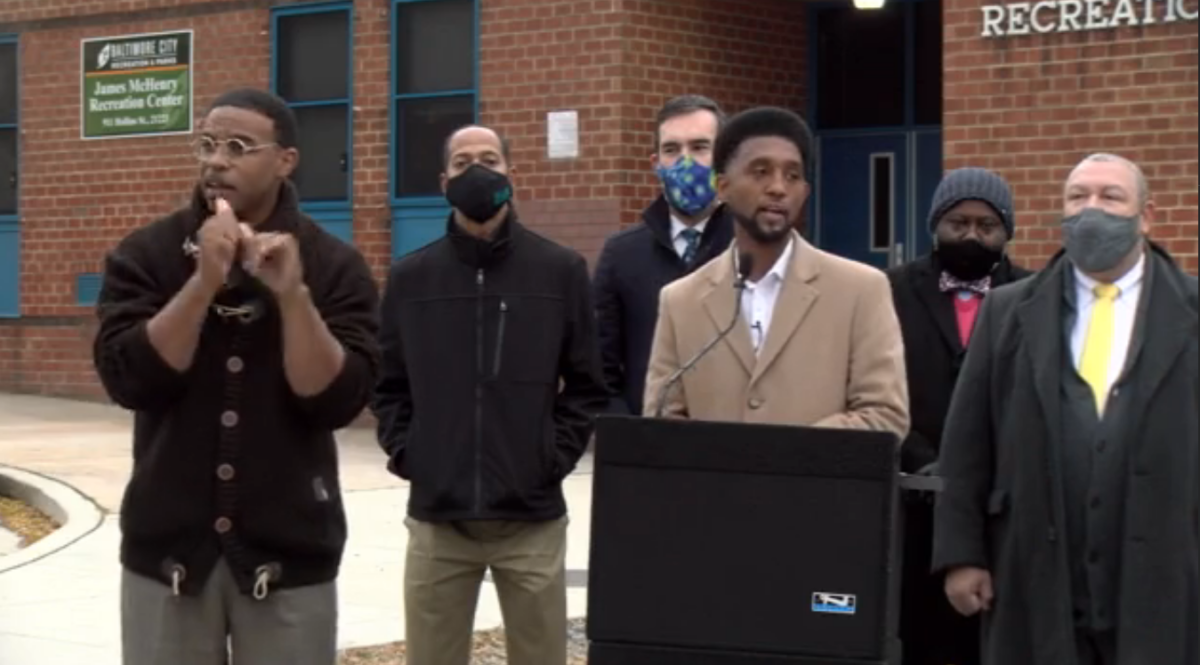Baltimore City’s latest plans for American Rescue Plan Act funds are aimed at boosting digital equity.
Outside the James McHenry Recreation Center on Tuesday, city officials announced a digital equity plan for the next decade that will include a $35 million investment in broadband infrastructure, which Mayor Brandon Scott called a “down payment” on closing the digital divide permanently in the next ten years. According to the Abell Foundation, there are about 96,000 households that go without wireline internet in the city today.
Of the new investment, $6 million is immediately going toward expanding City-run fiber to recreation centers across the city, enabling them to provide Wi-Fi for the community. The City is also planning to install 100 free, public Wi-Fi hotspots across 10 West Baltimore neighborhoods.
Along with this infrastructure, the City is planning to hire a digital equity coordinator and staff who bring experience in Wi-Fi deployment, fiber engineering, operations and tech support.
“We have to prepare Baltimore for the future and ensure all of our residents have the ability to participate in today’s digital world,” said Mayor Brandon Scott. “I promise to close the digital divide here in Baltimore once and for all by the year 2030. We will pave the way on digital equity for major cities around the country.”
Under the American Rescue Plan Act, which passed Congress in March, Baltimore City received $641 million. After laying out a priority list that included broadband and small businesses, Scott has been steadily announcing the City’s investments with that money.
Per publicly available info, the City has allocated $271 million in funding so far. The big investments so far have included $80 million over four years to the Baltimore City Health Department, $50 million over the next three years to the Mayor’s Office of Neighborhood Safety and Engagement, $30 million with the Mayor’s Office of Employment Development and $25 million split amongst five different orgs centered around tourism and hospitality, along with $51 million used to close a budget shortfall.
$641,000,000
“Like clean water and public roads, broadband access has become one of those essential services,” said Jason Hardebeck, director of the Mayor’s Office of Broadband and Digital Equity. He then went on to reveal the digital equity plan for the City, which he mentioned in his first 100 days Q&A.
“[It] will serve as our vision and our compass as we begin the hard work to permanently close the digital divide in our city,” he said.
The Digital Equity Framework, along with the recording of the full announcement, is below:







